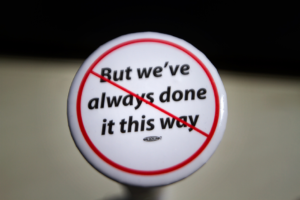
19 – Employers focus on keeping people in jobs
Employers focus on keeping people in jobs, and other useful things to know and do for all the employers, contractors and job seekers in the Spinifex community
This week we take a look at what employers are focused on. Although times are tough, there are opportunities out there. But employers and job seekers are going to have to rethink the ‘way things have always been done’ in order to survive and thrive.
But first, let’s see what jobs are out there
Over the past week, we’ve listed a number of opportunities in the following Top Ten categories and locations across NSW. Over 23% of jobs listed are in the Construction & Trades sectors.

Bathurst | Manildra |
Byron Bay | Orange |
Canberra | Parkes |
Canowindra | Parramatta |
Coffs Harbour | Sydney |
Dubbo | Tamworth |
Forbes | Tumut |
Grafton | Tweed region |
Lismore | Wagga Wagga |
For more information, take a look at our current job opportunities
Also check out the Australian Government Jobs Hub
It’s all about people and productivity
Megan Kearney, our HR Advisor, shares insights on what employers are up against and how they are responding

Recent research by the National Skills Commission (NSC) around businesses experience with COVID19 has found employers are becoming more certain about the future. However, there are still concerns about:
the need to balance staff numbers and hours carefully to manage current workloads and costs
the need for continued government support
staff health including mental health
lower demand for products and services, lower turnover and emerging cash flow problems
for some, difficulties securing stock and supply chain problems
challenges due to closed borders and travel restrictions
difficulties placing new apprentices/those in training.
“At any one time, Spinifex has up to 1000 temps and contractors working across NSW, and our own staff in nine city, country and coast locations,” explains Megan.
“So, we’re on the ground with employers and this gives us a deep understanding of the challenges and opportunities they face. It also allows us to work collaboratively with them on solutions relevant to the industry and community in which they operate.
“What we’ve noticed the most, is employers working hard to keep their staff on, and keep them healthy in mind and body.
“This is driven by the need to maintain productivity, but also by a recognition that employers and employees are now more interdependent than ever and how a business treats its employees matters to its customers.
“At the start of COVID, the biggest challenge for employers was not to be sucked into the vortex of panic and reactionary responses.
“There was, and still is, a constant and inescapable barrage of information coming through media and industry sources. You don’t want to add to the noise, so communication has to be evidence-based, relevant and honest. If you don’t have an answer, then don’t pretend you do. This is not the time for ambiguity or weasel words.
“The first focus had to be on ensuring communications were open and effective enough to enable employers and employees to share concerns and questions, as they emerged, and learn together.
“The second focus was on adapting policies and processes already in place.
“Together, these actions created some stability which, in turn, created readiness to adapt again when needed.
“Employers who took this slow but steady approach were actually quicker to adapt than those who got caught up in the frenzy.”
“Now, as the National Skills Commission research shows, there is some operational confidence returning, although it differs between city and regional areas.
“In the city, we’re working with employers who have a large percentage of their workforce still working from home and the challenge is to manage performance, communications and collaboration remotely, particularly for temps and contractors. This requires a shift in policies and processes, extreme flexibility and a little help from cloud-based collaborative workflow apps.
“In country and coastal regions, we’re seeing more people in the workplace, because they cannot do their jobs from home but also because extra space makes it easier to maintain a COVID-safe environment. One of the biggest challenges here is maintaining equity between people who can and cannot work from home.”
Some examples of the proactive practices, which Megan has seen
IN AGRIBUSINESS
There are few alternatives to work, such as harvesting to milking, that has to be done in situ. Here we’re seeing employers make better use of research and pursue new skill sets, which compliment traditional wisdom, to identify ways of working smarter and more efficiently.
The Manildra Group, which straddles both the commercial and industrial arms of agribusiness, is a real standout. This is a company which values its people. Safety was already a high priority and not just on paper: staff walk the talk at all levels of the organisation. This pro-safety culture made it easier for them to increase safety controls further. The family-owned business also made further investment in its ethanol distillery to increase production for pharmaceutical and beverage industries.
IN TRANSPORT & LOGISTICS
Transport has become more vital than ever. Transport and warehouse operators have had to take a very agile approach to balancing an increase in demand with constant fluctuations in manufacturing and supply chains.
In Western Sydney for example, operators are focused on making sure they have the right skill mix to help them adjust to volatility on a daily basis, step up and assist their Victorian counterparts, manage tighter regulatory processes and increase already-high safety standards. This requires a mix of skills such as forklift driving, operations-fleet management, WHS co-ordination and compliance monitoring and reporting.
IN EDUCATION AND TRAINING
This sector has been particularly hard hit by COVID. NSW TAFE, was one of the first to embrace change by offering a range of fee-free, short courses online. A great example of a practical and valuable proactive strategy which is helping job seekers adapt and improving skills for the future.
NSW TAFE also stands out for its adjustment of remote work policies to be more inclusive of temp and contracting staff. A gamechanger for them was a ‘virtual desktop’ system developed by it’s own IT team which enabled them to onboard contingent staff into the organisation to a higher degree and extend greater trust to work in isolation.
IN GOVERNMENT
NSW State and Local governments have significantly increased their human resources agility, so they can redeploy people when and where they are needed in an ever-changing environment. This has required constant adjustments for people working from home and reintegrating back into the workplace.
IN MINING
Although stringent safety protocols were already in place, and able to be quickly adapted to the new environment, the challenge was (and is) to keep a shift-based workforce, spread across a vast and complex workplace, well informed on WHS issues and procedural changes. Mining operators which led the way with their internal communications and a range of proactive initiatives include:
These mines also worked collaboratively with service providers, such as Spinifex, to create communication tools focused on core issues, such as Mental Health – 6 tips for coping with stress fact sheet
IN RENEWABLE ENERGY
One proactive strategy to dealing with change is to forge ahead with innovative projects that will also drive jobs. This is very evident in the renewable energy sector which, thanks to government funding, is now pushing ahead with projects such as:
Solar farms
Underground dams
Waste repurposing
All these efforts are very heartening, but it’s not up to employers alone
Employees and job seekers also need to shift their thinking.
The government is supporting this with resources and tools to help job seekers make decisions about what’s next, such as:
Keeping track of emerging occupations the NSC has identified in 7 key areas:
Digital deepening
Data Analytics
Emerging Business Practices
Regulatory
Health
Sustainable Engineering and Trades
Refreshing Australia & NZ Standard Classification of Occupations (ANZSCO)Using tools on the new Jobs Outlook portal to:
Get ideas for new jobs that match your skills
Discover careers that match your work style
Explore careers in demand where you work
Find industries and jobs expected to grow in the future
Find out more about topics covered in this update:
Communications during times of change – Spinifex Update 8
Jobs and skills of the future – Spinifex Update 5
The C-skills employers are looking for – Spinifex Update 10
The old and new skills merging in agribusiness, mining, manufacturing, health, energy and water services – Spinifex Update 12
Until next week, stay safe.
Download PDF version of this update
